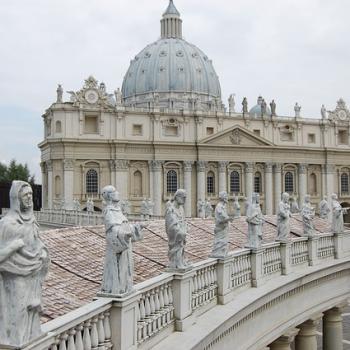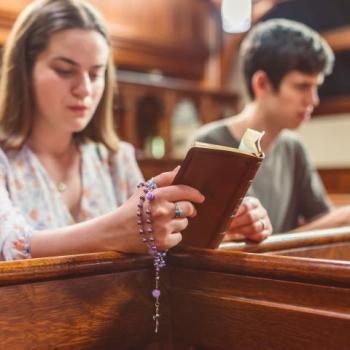Established six years ago, Al Ahyla School is part of a network of Jewish and Arab schools known as Atid (“future” in Hebrew) schools that focus on science and technology. They are funded both by tuition -- about $750 a year -- and the education ministry. These schools have critics, however, who think the privatization of education does not solve the bigger problems that face the public education system.
The $5.8 million tab for the school’s construction was picked up by the Islamic Movement, which controls the Umm al-Fahm municipal council. The city is the headquarters of the Islamic Movement’s northern branch, which has been criticized for its anti-state rhetoric. Some Jewish Israelis believe its strategy is similar to Hamas -- which amassed power in part by providing social services to the underprivileged, who are neglected by authorities.
Atef Moadi, executive director of the Follow-Up Committee on Arab Education, the official voice on education in Israel’s Arab community, expresses concern for a different reason: “Our problem with these schools is that they are selective,” he says. “They take the good students out of other schools, posing a dilemma for us. On the one hand, it’s an opportunity for these students, who will go on to university, but it hurts public schools,” he says, echoing the debate over charter schools in the United States.
Schools like Al Ahyla are not the only alternative to public schools. There are now four bilingual schools known as Hand in Hand [Yad B’Yad in Hebrew]. The first two began in Jerusalem and the Galilee more than ten years ago and recent additions are a nursery school in Beersheva and an elementary/middle school in Kfar Kara, an Arab village in northern Israel. Hand in Hand schools are run by co-principals, one an Arab, the other a Jew, and each class is co-taught by Jewish and Arab teachers. Classes have an equal number of Jewish and Arab students who are expected to become fluent in both languages.
The Hand in Hand schools are known for becoming communities where children as well as parents bond. Students study and play side-by-side, becoming parts of one another’s lives -- a rarity in Israel. “I say as a Zionist that it is essential to the Zionist idea that the Jewish state not be based on the concept of segregation,” says Sam Shube, executive director of Hand in Hand.
Like Shube, Amnon Rubinstein, education minister from 1992 to 1996 and winner of the 2006 Israel Prize, is an advocate for integrated schools. “Mixed schools should be encouraged,” he says. “I believe the separation between Arabs and Jews is bad for the future.” But despite such calls for integration, there is no major push to desegregate Arab and Jewish schools. Most people in both communities prefer to study in their native languages and within their cultures. “I think the schools have to be separate,” says Moadi. “We are talking about two communities, two peoples, a different heritage and history and culture.” Hand in Hand’s Shube admits that the public lacks the will for modeling public schools after his own. “Our concept requires a great amount of mutual tolerance and respect, which is not something that pervades Israeli society right now.”
Gideon Saar is said to have his eye on the prime ministership. At 46, he is the education minister and a rising star of the Likud Party. The handsome bespectacled Saar is young for an Israeli politician. He lives in a trendy central Tel Aviv neighborhood and on many issues is socially liberal. But the liberalism of this fifth-generation sabra, raised on the slogan of “Israel, on both sides of the Jordan,” comes to a complete stop on the subject of Palestinians. A fervent Zionist, he has tried to inject a sense of patriotism into Israel’s public schools.
In some ways, his political opposite is Yuli Tamir, 56, whom he replaced as education minister in 2009 when Netanyahu became prime minister for the second time. Tamir, a former philosophy professor, is a founder of Peace Now, and while she was education minister allotted funds to teach about equality, mutual respect, and partnership as a way to promote coexistence between Arabs and Jews. She infuriated the right in 2007 when she approved the use of the word nakba -- “catastrophe” in Arabic -- in history textbooks for third and fourth graders in Arab schools.
In 2009, almost immediately after his appointment, Saar reversed course, ordering the removal of the offending sentence: “The Arabs call the war nakba -- a war of catastrophe, loss, and humiliation -- and the Jews call it the Independence War.” In his Knesset speech explaining the decision, Saar was indignant. “In no country in the world does an educational curriculum refer to the creation of the country as a ‘catastrophe,’” he said. “The objective of the education system is not to deny the legitimacy of our state, nor promote extremism among Arab Israelis,” he added.




